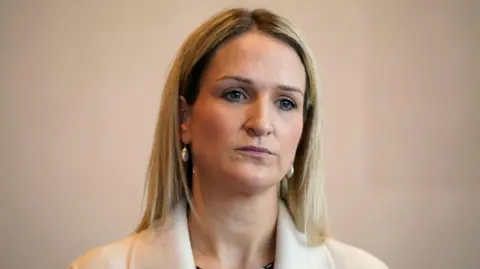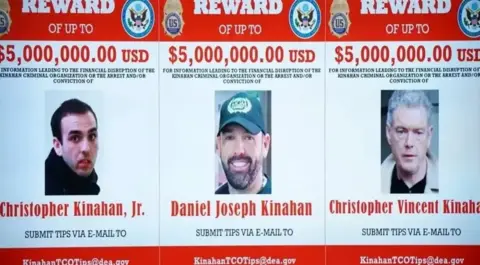Ireland signs extradition treaties with UAE
 PA Media
PA MediaTwo bilateral treaties on extradition and mutual legal assistance have been signed by the Republic of Ireland and the United Arab Emirates (UAE).
Irish Justice Minister Helen McEntee travelled to Abu Dhabi to sign the agreements with her UAE counterpart Abdullah Bin Sultan Bin Awad Al Nuaimi.
Negotiations between the countries opened last year with the hopes of tackling organised crime and drug gangs.
It is hoped the agreements will allow for the extradition of one of the alleged most senior members of the Kinahan organised crime gang back to the Republic of Ireland.
Sean McGovern was arrested by Dubai police earlier this month after the publication of an Interpol Red Notice.
The 38-year-old is wanted for charges including murder and directing an organised crime group.
The leaders of the Kinahan crime gang, Ireland's wealthiest and most powerful crime gang, are believed to be based in the UAE.
Interpol previously described Mr McGovern as "one of Ireland's most wanted fugitives".
'There is no hiding place'
On Friday, McEntee received approval from the Irish government to sign the treaties with the UAE.
Approval from the Dáil (lower house of Irish parliament) will now be sought before procedures necessary to allow the treaties to come into force are completed.
McEntee said the agreement meant those involved in organised crime would be held responsible for their actions.
"Any person involved in organised crime should know there is no hiding place, you will face justice," she added.
 PA Media
PA Media"Many organised crime gangs think they can evade justice by crossing borders," she said.
"They cannot.
"There can be no hiding place anywhere in the world for criminals."
The Irish justice minister said the agreement was a "culmination of extensive engagements" with her Emerati counterpart, which will be of "significant support in tackling organised crime and transnational drug trafficking gangs".
